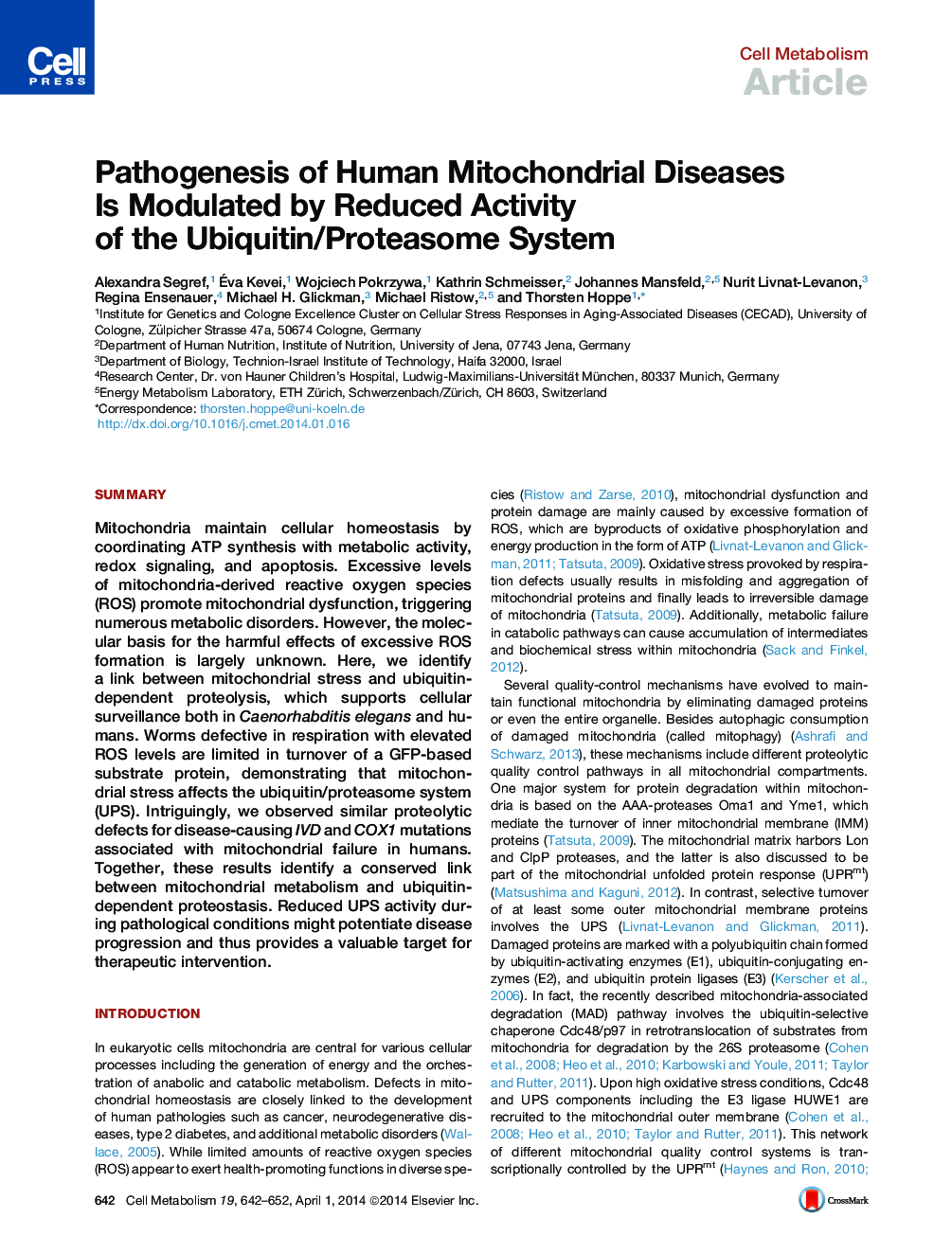| کد مقاله | کد نشریه | سال انتشار | مقاله انگلیسی | نسخه تمام متن |
|---|---|---|---|---|
| 2792666 | 1155075 | 2014 | 11 صفحه PDF | دانلود رایگان |

• Elevated ROS through mitochondrial failure affects UPS-mediated protein turnover
• ROS-induced protein degradation defects can be suppressed by antioxidants
• Disease-underlying mitochondrial mutations display UPS defects in humans
SummaryMitochondria maintain cellular homeostasis by coordinating ATP synthesis with metabolic activity, redox signaling, and apoptosis. Excessive levels of mitochondria-derived reactive oxygen species (ROS) promote mitochondrial dysfunction, triggering numerous metabolic disorders. However, the molecular basis for the harmful effects of excessive ROS formation is largely unknown. Here, we identify a link between mitochondrial stress and ubiquitin-dependent proteolysis, which supports cellular surveillance both in Caenorhabditis elegans and humans. Worms defective in respiration with elevated ROS levels are limited in turnover of a GFP-based substrate protein, demonstrating that mitochondrial stress affects the ubiquitin/proteasome system (UPS). Intriguingly, we observed similar proteolytic defects for disease-causing IVD and COX1 mutations associated with mitochondrial failure in humans. Together, these results identify a conserved link between mitochondrial metabolism and ubiquitin-dependent proteostasis. Reduced UPS activity during pathological conditions might potentiate disease progression and thus provides a valuable target for therapeutic intervention.
Graphical AbstractFigure optionsDownload high-quality image (167 K)Download as PowerPoint slide
Journal: - Volume 19, Issue 4, 1 April 2014, Pages 642–652